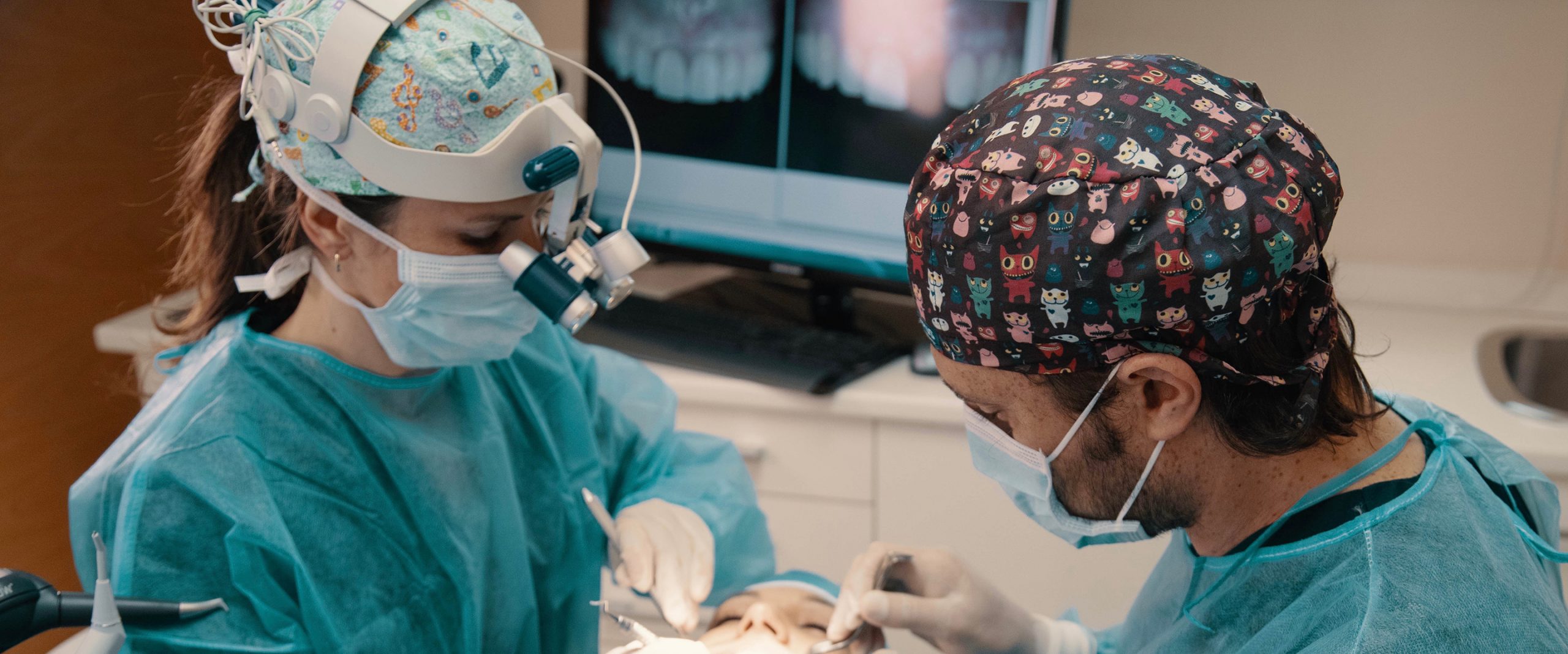When you start your dental training everything is focused on how to perform a treatment to satisfy the dental needs of your patient: a simple dental cleaning, a filling/crown, pain treatment or even rehabilitating the patient’s function using dental implants.
When I graduated as a specialist in periodontology and implant dentistry and decided to start my own private practice with my partner it turned out to be a challenge. We soon realized that this meant running a business and running a business wasn’t taught during our dental training.
I come from a family of dentists (fourth generation) and had the opportunity to assist my father in his dental practice on many occasions as well as being part of daily practice life, which is obviously not limited to treating the patient. There I actually saw for the first time what happens as soon as the patient leaves the chair and how the instruments that had just been used are processed. The disinfection and sterilization process, an extremely important part of avoiding cross infections, is crucial to the proper functioning of a dental practice.
At the very beginning and for 18 months, my partner and I worked together without the help of a dental assistant. We were each other’s assistant, which meant we also had to organize our agenda and schedule our patients ourselves. As this often is done on the phone, the tone of voice, the way your voice sounds and the respect you have to get across is another challenge no one ever talked about. Not only scheduling the patient’s first appointment but also getting the patient to commit to coming back on a regular basis for check-ups is almost an ‘art’.
Apart from handling the patient, the instruments, and the schedule, the practice also needs material to be able to provide treatment. So another thing that popped up: ordering inventory. You have to order dental material, find the providers, cut deals, look for the monthly discounts and get organized so that you know in advance when you need to order certain products again!
And then, a very important part, but one that a lot of us dread, is the paperwork that comes with running a business. I am the one in our practice who contacts the accountant on a weekly basis to send her all the invoices related to patients, dental material, staff, fixed monthly costs. And apart from the accountant you also have the tax advisor who is key when it comes to presenting the right forms for submitting taxes.
Working with employees means you have to comply with certain regulations and to understand that you need external expertise. There are companies that provide training on how to handle the dental material, what to do if an accident happens during working hours, the need for a yearly medical examination, and so much more.
And how do you attract patients to your practice? You need to be ‘visible’ and nowadays this can be done in different ways. I think we all know that a website is a MUST, so anyone who is interested can get to know you, the practice environment, the services you give, see the location.
Social media represent a powerful tool for increasing your visibility and it is also a powerful tool for targeted marketing.
As we are specialists to whom general dentists provide referrals, we visited all the clinics in the area to introduce ourselves and our services in person. And the best publicity of all is from the first patients who start to spread the word in their immediate environment. We did try a couple of other ways to promote ourselves – printing and distributing flyers, articles in the local newspaper – but that never led to new patients.
So, studying to become a dentist is one thing, but running your own private practice is something completely different for which we get no formal training. I truly believe this should be added to the dental curriculum, at least during our last year. It would mean that if we decide to go for the private practice set-up we would have some basic information about what is involved.
For all those of you who would like to start your own business, open a private practice, the first step is to find courses on how to run a business, how marketing works, how to attract patients. It will help you avoid unnecessary mistakes and get you up to speed right from the start.
Interested in growing your practice? Then discover the new online Dental Practice Management course by the ITI and IMD!






